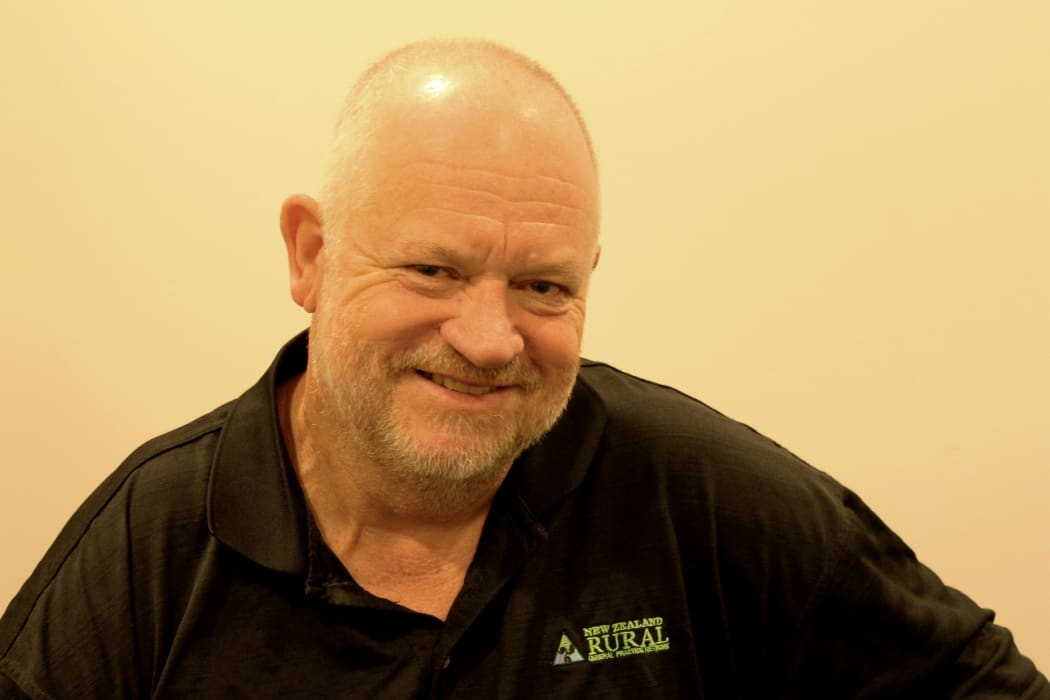In January this year, rural GP and part-time farmer Dr Tim Malloy suddenly found himself deep in a ditch with his own 500cc quad bike on top of him.

Dr Tim Malloy Photo: RNZ/Carol Stiles
After attending multiple quad bike accidents as a GP, Dr Malloy’s own accident left him with 15 fractured ribs, sustained collapsed lungs, massive burns to his abdomen and renal failure.
Dr Malloy is now back working part-time as a doctor. He talks with Kathryn about his recovery and his new perspective.
Listen to Dr Tim Malloy on Country Life (8 April 2016)
Interview highlights
Dr Tim Malloy: If you’ve seen the movie Hunt For The Wilderpeople you’ll understand the type of environment I live on. That formed quite a considerable portion of the setting of the movie… The settlers house (in Hunt For The Wilderpeople) is on my land.
I was mustering in a paddock that I don’t normally muster in. I was driving through the paddock and I knew there was a waterway, a ditch, ahead of me. I turned and rode my bike along the side of the ditch and made an error of judgement in which my front right wheel fell down the edge of the ditch in a little dip, which then threw me off the bike and in the ditch itself and the bike slowly rolled on top of me.
Fortunately it avoided my head and landed on my chest. So my greatest immediate threat with breathing, for which I was struggling very significantly. I didn’t reflect on anything further at that point, just getting my breath. I tried pushing the bike, which was a waste of time. I achieved nothing. And I tried to wriggle into a better position to see if I could breathe more easily, which possibly helped a little. But to be frank, breathing was a major problem. I had nowhere to go and I knew that. It wasn’t looking good at that point.
My first thought was how the hell am I going to get out of this scenario? I was not too distant from a road, but it was a country road that people don’t normally walk along. My bike, at this stage, was still running and I was also aware of a new risk to me as I felt the heat of the wheel, which was starting to heat up from the engine heat and also from the heat of the day as the day became hotter and hotter – don’t forget this is the middle of summer. I could feel it starting to burn into the side of my abdomen. That started to become increasingly uncomfortable.
I started to try and time my breathing so I could have sufficient breath to yell for help… Fortunately, the motor eventually stopped after about three hours and I could hear a chainsaw in the background. So I had the thought that if I could hear the chainsaw maybe he could hear me. I deliberately timed my yelling for help to the times when the chainsaw stopped, hoping that he would take his earmuffs off.
Fortunately for me - I’m told after the event – he must have done so and he called the owner of the property next to mine, who came home to the farm and went for a ride on his quad bike and found me in the paddock... The sheer exhilaration of his presence is something I will recall for a long time to come.
I’m significantly more positive about where I’m headed now. A trauma of this nature affects you in lots of different ways. The sense of guilt that I had around the stupidity of my actions, the impact on my family, the waste of the resources, the fact that I left my colleagues in the lurch to have to cope with my absence, these sorts of feelings… I’ve worked my way past them.
The loss of empowerment that comes with the vulnerability… is something that each of us adjusts to differently. I guess it’s my male macho upbringing or something, but I did not cope well with being disempowered and so dependent on others, as well as I thought I might or as well as I hoped. That disempowerment remains a continuing frustration. It affects you in lots of ways. This rollercoaster has been an important experience in terms of not just myself, but my knowledge and understanding of others in similar trauma.
As a GP of 30-odd years’ experience, I’d like to think I kind of knew this anyway, but the experience has reinforced for me some of those important values that patients have. That disempowerment, that vulnerability that you are in the hands of your carers and the critical important role health providers have in terms of keeping you informed, keeping you engaged in your own care and really just communicating with you at the level of a human being.

